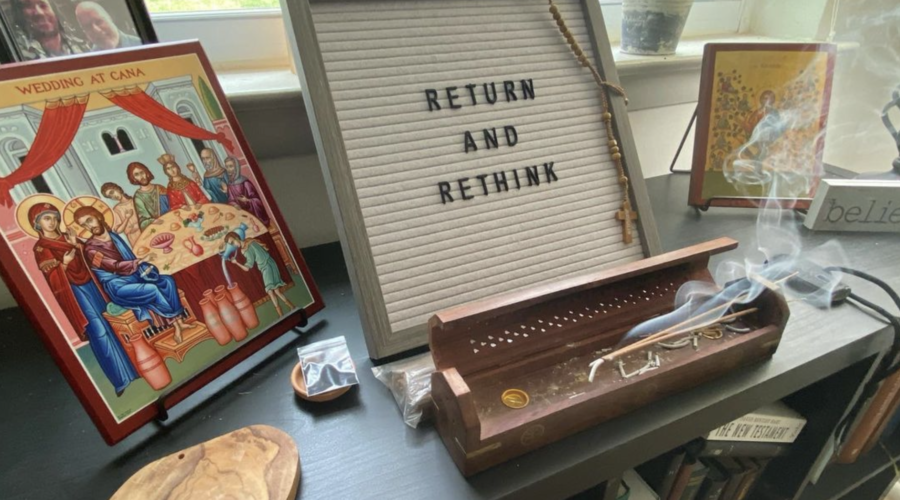We are told not to talk about religion or politics at dinner. This has also translated over into being told not to talk about religion or politics at church, hasn’t it? That being said, I have become less and less interested in a Jesus that avoids critiquing religion and politics. It’s not because I am trying to be some rabble rouser, but because I believe that true spirituality is about looking at the world with brutally honest eyes, and I trust that Jesus sees the world better than I do.
However, what if Easter Week was itself a week of critiquing both religion and politics? You know, the functional gods that many of us build our lives around instead of the Christ?
For a long time, I have always enjoyed the rebels, the punks, the prophets, the revolutionaries. You do, too. We love movies or books or songs about them or created by them.
Well, this week I am rolling over how Jesus was a “radical traditionalist.” He was SO faithful to his tradition, SO anchored in healthy expressions of his own Judaism that the religious and political leaders of his day found him to be a personal threat to them.
Hence why they colluded to take him out during Easter week.
But it is almost as if everything that Jesus did during Easter week was some sort of performance street art, some guerrilla theological theater, as a public display of his value system that according to the Jesus traditions of the world, we say are also the value system of Yahweh.
This year, I am settling into the idea that the events of Easter week are also public critiques of religion and politics of the ancient near eastern culture, and not only theological mysteries. It’s a both/and.
It actually reminds me how at one point I was told, “John, Jesus was not some mystic revolutionary rabbi, he was the Son of God.” My reply then is the same as it would be now, “Jesus being a mystic revolutionary rabbi and being the Son of God are not mutually exclusive.”
Jesus flips some tables and sits with sinners at others. It is us that have a hard time predicting which ones he will flip and which ones he will sit at.
So let’s go through Easter week and draw out just a few thoughts about how it is a profound and public critique of religion, politics and the cosmic narratives we mistakenly hold.

Easter Week
Palm Sunday – Christ enters Jerusalem from the east, not riding a war-horse but a servant-donkey. The power and force of kings are contrasted with humility and service of the God-man.
Great or Holy Monday – Jesus goes into the Temple and flips the money changers tables, in defiant critique of how religion was being done. The finances, the social designations, the hierarchy, all of it.
Maundy Thursday – Christ kneels and washes the feet of the disciples, voluntarily, not under coercion or payment. Leadership is marked by raising other people up, not by surrounding people to one person.
Good Friday – Christ becomes the scapegoat to reveal the lie of scapegoating, sacrificed at the same time as the lambs of Passover, outside of Jerusalem like a rejected prophet of old, near where Cain killed Abel, showing that God is more interested in love than retribution, all the while exposing the religious and political leaders of his day for being the standoffish manipulators willing to do whatever they need to (crucify an innocent man) in order to maintain their power.
Silent Saturday – Christ, the God-man, fully rests like some cosmic repetition of the first Sabbath, and that during this time Christ descends into hell to level its gates, liberate all that are held captive and take back the keys of hell and death. The harrowing of hell is shown to be a divine prison break/rescue plan.
Easter Sunday – Christ is raised as the “first fruits of the resurrection”, showing all a foretaste of what will happen to them. It is the first day of a brand new Creation week, in which “light shines in darkness” again. This then begins the 40 days in which Jesus teaches the disciples further about the Kingdom of Heaven before he is Ascended and delegates the task of creating disciples to his disciples.
Just some thoughts for you to think about.
This week is about the integration of many things, the collision of many worlds or spheres, the reconciliation of all that is divided. It is possible that this week can be both redemptive AND revolutionary.

